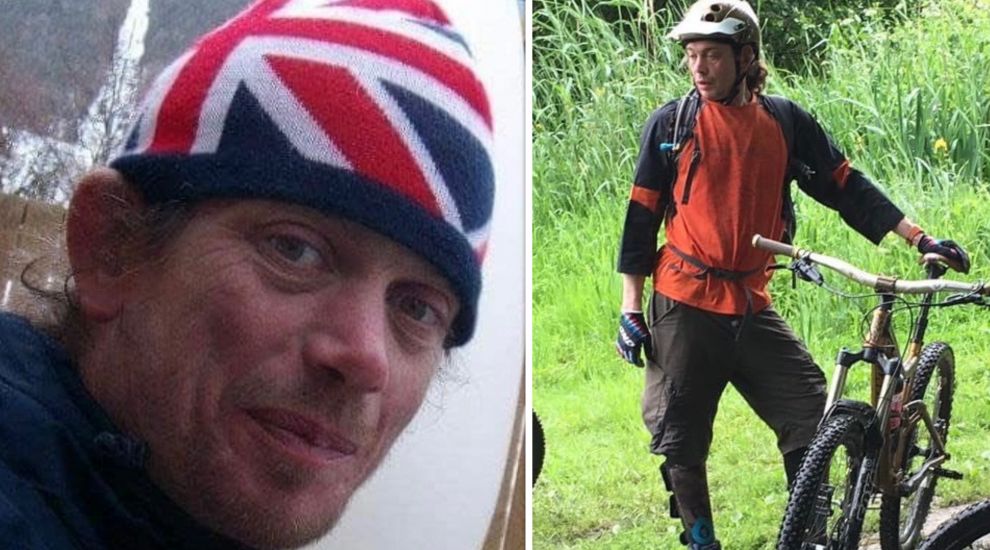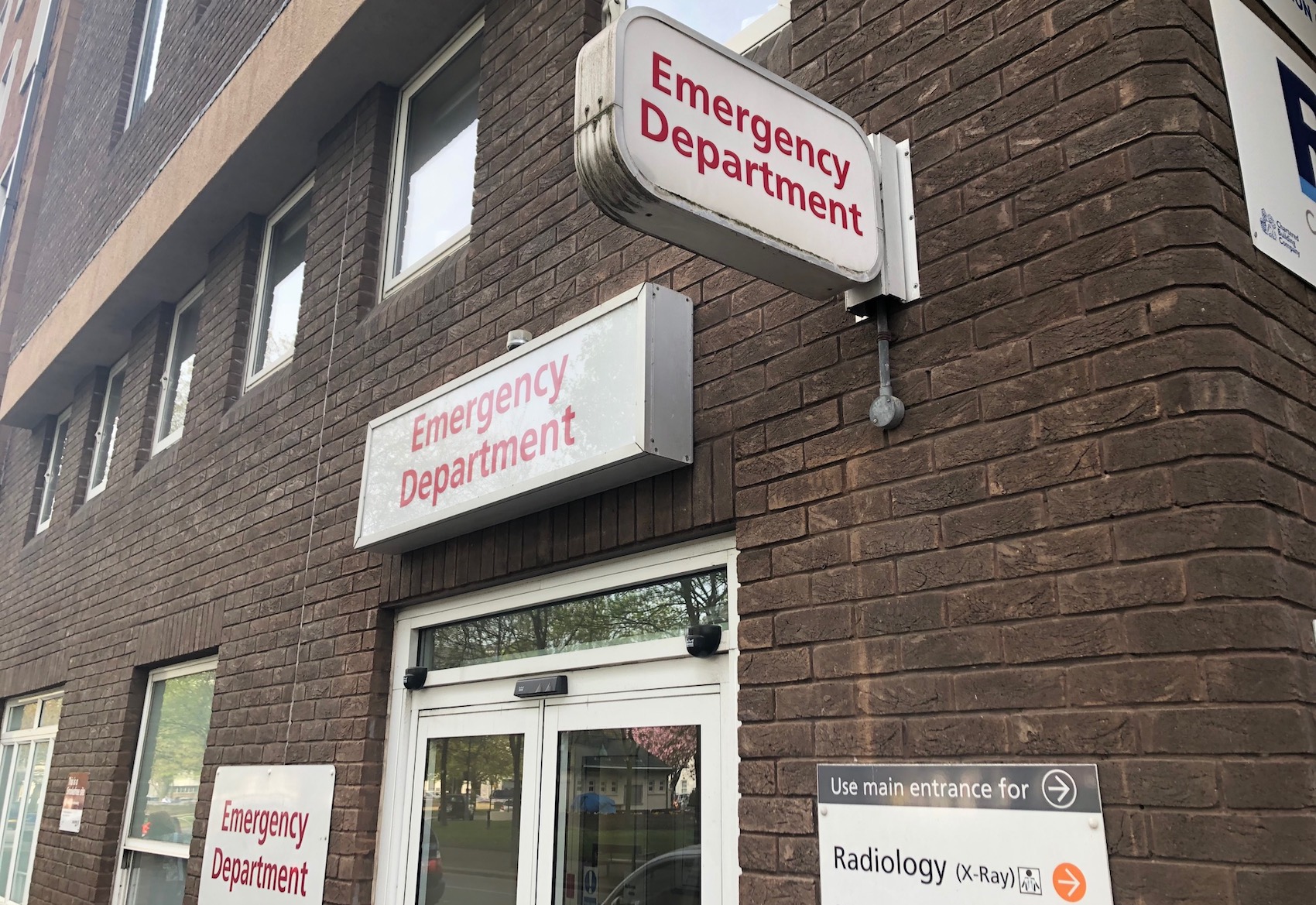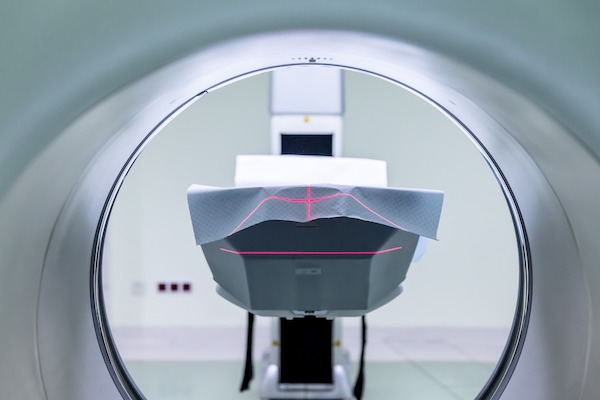


The family of an active 49-year-old, who died following a seizure after waiting nearly a year for an epilepsy assessment at the hospital, is calling for an independent serious incident review.
Glasgow-born Alistair Scott Bennett – known as Scott – died on 9 June 2021 after a wait of nearly 10 months for an MRI.
He had been due to be assessed for epilepsy after having a fit whilst on a building site in August 2020, but, while he was referred for a scan, one was never carried out.
Without an official diagnosis of epilepsy, an inquest was opened to understand what caused his death.
It closed yesterday, with Coroner Advocate Mark Harris concluding that whilst the medical cause of death had not finally been ascertained, Scott’s death had been due to an “epileptic-type seizure”.
The Government declined to comment on whether it would open a serious incident review when asked by Express after the inquest, saying it could not comment due to a complaints process being underway.

Pictured: Scott was born in 1971 in Glasgow.
Born in 1971 in Glasgow, Scott was Irene’s youngest son and had two elder brothers, Richard and Andrew.
The family moved to the island in the summer of 1980 when Graeme, a structural engineer, came to work here. Scott trained as an electrician at Highlands College and was named top apprentice in 1993.
Irene said Scott was “fit and active” and liked mountain biking, snowboarding and socialising with friends, and had no existing medical conditions of note.
Scott had a 32-minute seizure in front of his colleagues at work and was taken to A&E.
The doctor noted that Scott was off for migraine symptoms at the time but “otherwise fit”. He referred him for an MRI and an appointment with the neurology department and told him not to use his bike.

Pictured: Scott was taken to A&E in August 2020 after he had a seizure at work.
Scott was then seen by Dr Howard Gibson, Consultant Physician and Neurologist, on 24 November. In a letter written to Scott’s GP, he wrote that Scott had had a migraine for three days before the seizure and experienced a “strange feeling” in his arm and a strange smell before losing consciousness.
As Scott had not any attacks since August 2020, he said he had not prescribed any anti-convulsants but would review the position once Scott had received a MRI. The Coroner, however, noted there was no record of an MRI “ever taking place”.
10 months later, his mother Irene - a nurse with whom he was living - found him "stone cold" with no signs of life after checking on him in his room after not seeing him all day.
Irene explained that an appointment for an MRI had been requested but none had been arranged. She said Scott had received “no care” from the hospital and that they “didn’t get around to diagnosing him”.
Irene explained that her family “trusted the system” and didn’t follow up on the MRI, as Scott was doing “what he was told”. She said that looking back she had seen a “change in his character” and that he “very seldom” came to chat with her and became less responsive to his friends’ messages.
She said she firmly believed he shouldn’t have died and wanted to know how he died, “not to apportion blame, but to make sure lessons are learned”.

Pictured: At the time Scott died, it had been nearly 10 months since he had been referred for an MRI.
Andrew explained the family had had various discussions with various people including the hospital's governance department, Deputy Medical Director Dr Paul Hughes and Chief Nurse Rose Naylor. He said neither had been able to explain why Scott hadn’t received a MRI scan in a timely manner.
He also said that neither appeared to know that, under National Institute for Health and Clinical Excellence (NICE) guidelines, urgent neurologic assessments should take place within two weeks.
Andrew said it had been suggested that covid and waiting lists for MRI scans might have been to blame, but that a request he had made under the Freedom of Information Law had shown there was “no real difference in waiting times during the covid period”, with the average waiting time for urgent appointment noted as one week.
“We are completely confused, and we have an open question with the hospital,” he said. “We are not here to apportion blame, but what we want to do is understand why it happened and how it happened to make sure it doesn’t happen again.”
He added that an electroencephalogram (EEG) was a “traditional method of diagnosing epilepsy” and should be done soon after a seizure. He said he had become aware that there was no capability for EEG on the island and that the only person able to run the EEG hadn’t been on the island for over a year.
“We are trying to close the complaint down,” he added “But we firmly believe this is a serious incident and as such needs to be thoroughly reviewed and independently reviewed. The hospital haven’t said they aren’t but they didn’t say they were either.”
Andrew said he had written to the hospital most recently two weeks ago and had yet to receive a reply on whether a serious incident review would take place.
“We don’t believe Scott should have died, he was only 49,” Irene said. “He was a single man, he left nothing behind but it shouldn’t happen again, something should be put in place so that it doesn’t happen again.”
The Coroner said he was able to write to the relevant authorities to raise the issue to “prevent other people dying in similar situations”.

Pictured: The Deputy Viscount said he would write to the relevant authorities to raise the issue to “prevent other people dying in similar situations”.
Dr Miklos Perenyei, a Consultant Pathologist, said that no evidence of violence or injuries had been identified during the post-mortem examination and that neither drugs or alcohol had been found in Scott’s blood.
He added that no evidence of brain damage, malformation or lesion had been found in Scott’s brain, and that he had also considered the possibility of an alcohol withdrawal seizure but had ruled it out. He explained that the description of Scott’s seizure at work seemed “like textbook temporal lobe epilepsy”.
A "killer tumour" was also ruled out two weeks ago.
Dr Perenyei said there was no evidence Scott’s death had been caused by “anything other than natural causes”.
While he said he couldn’t confirm Scott was epileptic in the absence of clinical evidence, he said that, given his history, it was “more likely than not it was epilepsy”.
Comments
Comments on this story express the views of the commentator only, not Bailiwick Publishing. We are unable to guarantee the accuracy of any of those comments.